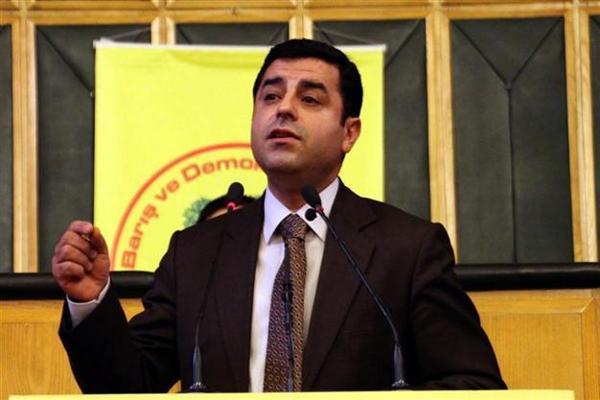Letters reached PKK leader Öcalan: BDP co-chair
ANKARA – Hürriyet Daily News


Peace and Democracy Party (BDP) co-chair Selahattin Demirtaş. DHA photo
Letters sent by the Kurdistan Communities Union (KCK), the alleged urban wing of the the outlawed Kurdistan Workers’ Party (PKK), and its Europe branch to Abdullah Öcalan, the imprisoned leader of the PKK, were delivered through officials on March 15, Peace and Democracy Party (BDP) co-chair Selahattin Demirtaş told reporters in Ankara on March 16.A message from, Öcalan is planned to be read during the Nevruz celebrations that will be held in Diyarbakır on March 21, Demirtaş said.
“These letters are not solely addressed to Öcalan. The government also reads the answers. So they also serve as a support for the government, helping it to carry forward the process,” Demirtaş said, adding that the third parliamentary delegation is set to visit Öcalan on İmralı island next week.
He also said the leaders of the PKK in the Kandil Mountains in northern Iraq had asked for the establishment of a direct communication line with Öcalan, adding his own opinion that such contact would prove important for the next stages of the process.
Demirtaş hinted that the call could be conveyed by the BDP’s Diyarbakır deputy, Leyla Zana.
Regarding the preparations of the Nevruz festivities, Demirtaş told reporters that the BDP had made an application to the Interior Ministry requesting officially that security be tightened during celebrations in Istanbul, İzmir and Gaziantep. “There will be groups of 10,000 people assembling [in these cities]. Provocations could happen even with a group of 50. We are reluctant [about these events].” The BDP had earlier announced that only a single celebration in the whole southeast region would be organized to prevent any incident from happening.
Demirtaş also said that although the negotiations had not yet produced visible results, half of the path toward peace had already been cleared.
“I disagree with the argument that society is not ready. The government is ready, wants it and is showing courage. Should peace not come into reality because 15-20 percent of the population does not want it?” he asked.
